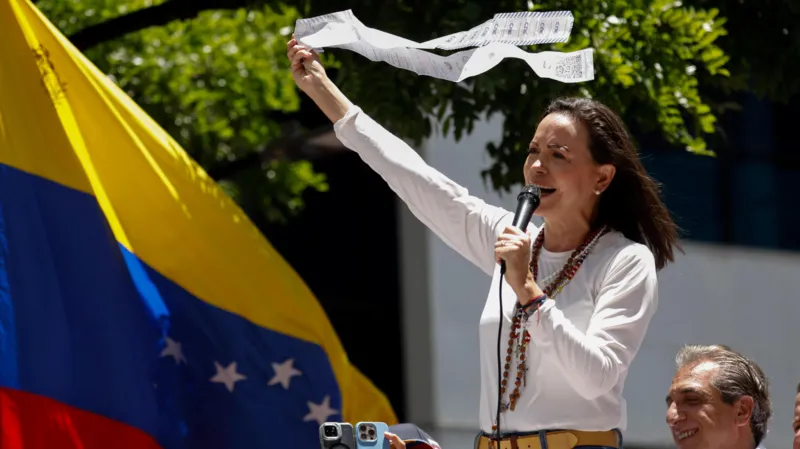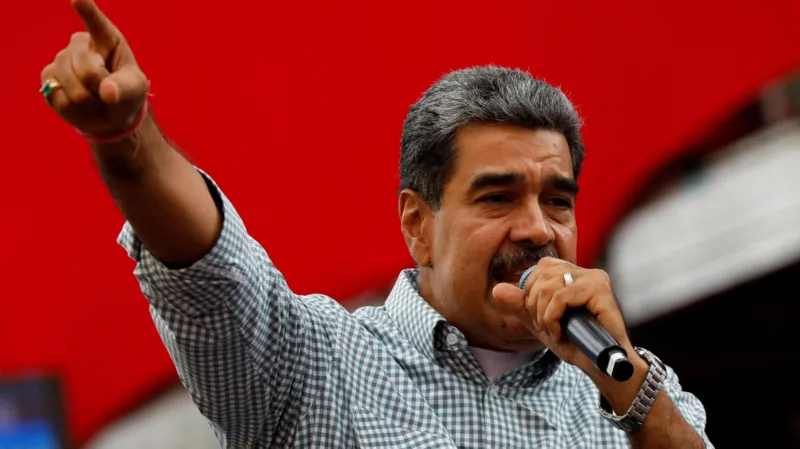Recently, an international controversy erupted after Venezuela accused the CIA of plotting to assassinate President Nicolás Maduro. Venezuela’s attorney general, Tariq William Saab, pointed the finger at the US intelligence agency, claiming plans were underway to topple the president. However, the US government denied the allegations, calling them completely baseless and without merit. The allegation has fueled already strained relations between the two countries, but with no evidence provided, it has raised more questions than answers.
History of charges
This is not the first time Venezuela has accused foreign powers of plotting against its leadership. Indeed, such claims have been a recurring theme throughout Nicolás Maduro’s presidency. Venezuela’s government has often pointed to external interference, particularly from the United States, as a source of many of its internal problems.
From coup attempts to alleged assassination plots, Maduro’s administration has often characterized the domestic and foreign opposition as puppets of the US government. While this rhetoric may resonate with some of Maduro’s supporters, the lack of concrete evidence to support such serious allegations has left many skeptical.
The recent claim that the CIA is plotting to assassinate Maduro fits this line of blame. Still, this raises an important question: Is there any truth behind these allegations, or are they simply a tool for political posturing?
In response to Venezuela’s claims, US officials quickly and decisively denied the accusation. A US government spokesman called the allegations “totally baseless” and a “desperate attempt” Venezuela to distract from its domestic challenges. The US has no interest in resorting to violence or conspiracies to remove Maduro from power, the official added, adding that the US is focused on supporting democratic governance and human rights in the country.
The United States has long been critical of Maduro’s leadership, particularly over human rights abuses, economic mismanagement and the collapse of democratic institutions in Venezuela. But despite these criticisms, US officials have emphasized diplomacy and sanctions as their primary weapons for effecting change in the region. He has denied involvement in violent actions to overthrow the government.

The CIA, like other US intelligence agencies, traditionally does not comment on specific allegations, but its history of covert operations during the Cold War has fueled conspiracy theories, particularly in Latin America. However, in recent years, U.S. policies toward Venezuela have been transparent, relying primarily on economic sanctions and international pressure rather than covert measures.
The Big Picture: Venezuela’s Internal Struggle
The timing of these allegations is notable, as Venezuela faces serious internal challenges. Economic instability, food and medicine shortages and inflation have crippled the country. Additionally, millions of Venezuelans have fled the country in search of better living conditions, creating the largest displacement crisis in modern history.
Maduro’s administration faces strong opposition both inside and outside the country. His critics say that his government has failed to provide basic needs to the people while eroding democratic freedoms. He also believes that the government often blames external forces, particularly the United States, to distract from its domestic failures.
While Venezuela continues to suffer, the recent allegations against the CIA may serve to divert attention from the government’s mismanagement. For many, the allegations are seen as part of a larger strategy to stoke nationalist sentiment and shift blame away from internal problems.
A complicated relationship between Venezuela and the United States
Relations between Venezuela and the United States have been strained for years. Under former President Hugo Chávez, Venezuela broke away from the United States and forged closer alliances with Russia, China, and Cuba. The United States has retaliated by imposing a series of sanctions on Venezuela, targeting the country’s oil industry and key government officials.
These sanctions have contributed to worsening the economic crisis in Venezuela. While Maduro’s government blames US sanctions for the country’s problems, many experts say the root of the crisis lies in Venezuelan government policies.
In recent years, the United States has supported opposition leader Juan Guaido, who declared himself interim president in 2019, arguing that Maduro’s 2018 re-election was rigged. While Guaido was recognized by many countries, including the United States, as Venezuela’s legitimate leader, Maduro has maintained control of the government and military.
What’s next?
As the US continues to deny the latest allegations of a CIA assassination plot, relations between the two countries are unlikely to improve in the near future. For Venezuela, such claims serve to further isolate it from the international community. For the US, the allegations are a reminder of the deep mistrust that exists between the two countries.
In the absence of concrete evidence to support these allegations, it seems likely that they will remain allegations. Still, the bigger picture of political instability in Venezuela remains a pressing issue. Until the root causes of the country’s challenges are addressed, Venezuela will remain at the center of regional and global debates about governance, human rights and international intervention.
Allegations that the CIA is plotting to assassinate Nicolas Maduro have been swiftly denied by the US government, calling them baseless and a distraction from Venezuela’s domestic problems. As Venezuela faces ongoing economic and political struggles, strained relations between the two countries are likely to remain. However, without evidence, these claims are unlikely to gain much traction outside of Venezuela, and the international community will continue to monitor the situation closely.
Inspired by bbc news and read more Article Here
